26 May
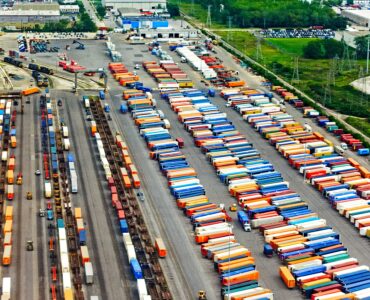
“State of Freight” on: Intermodal Tren...
A podcast we love? "State of Freight," by FTR's VP of Intermodal, Todd Tranausky. This episode features some great stats on intermodal — a hot-button sector of the industry.
19 May
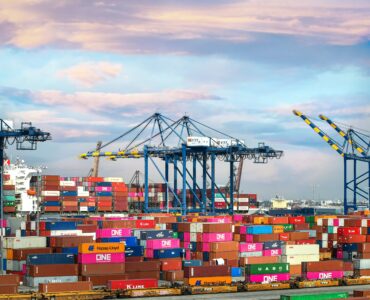
Constrained Capacity: A Long History and a Need fo...
Railroads prioritize cutting costs and raising prices (with a focus on the operating ratio). They have less concern about capacity and service.
12 May

RailState Webinar Featured in Railroad Weekly
We were thrilled to be mentioned in Railroad Weekly’s most recent post, “Shrilling and Grilling”!
05 May

Reciprocal Switching: One Industry, Two Sides
Reciprocal switching is one of the most debated topics in rail. What does it mean, exactly? As defined by FreightWaves, “Reciprocal switching occurs when a shipper has access to one freight railroad but wants access to a nearby competing freight
03 May
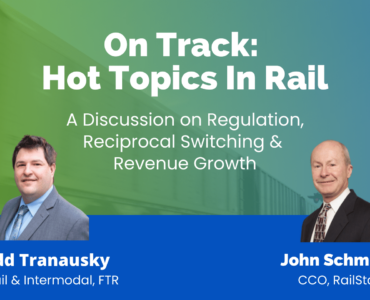
Our April 26th Webinar, “On Track: Hot Topic...
On April 26th, RailState hosted our webinar: “On Track: Hot Topics in Rail.” We were thrilled with the turnout and the discussion! Thank you to everyone who made it such a great event.
21 Apr
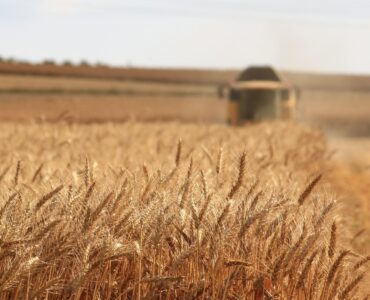
USDA Asks for Rail Service Improvement
The Surface Transportation Board is under pressure from the USDA to improve/implement “rail shipper-friendly” policies, to benefit agricultural commodity shippers.
12 Apr

What Data Sharing Means for Rail
Mid-March, the Biden administration announced an information-sharing program that would encourage ocean carriers, ports, trucks and major retailers to share data with each other, in order to combat supply chain disruptions and delays.
06 Apr

Visibility and ESG: The Case for Rail
ESG, or, Environmental, Social, and Governance Criteria: a set of standards that “consider how a company performs as a steward of nature.” Values-conscious investors are increasingly more concerned with whether or not potential investment companies meet these standards, putting pressure
23 Mar
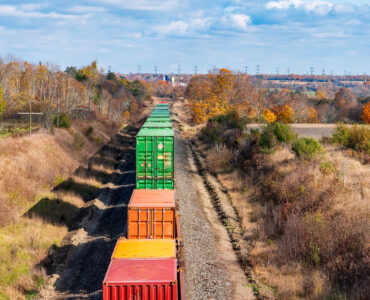
Top Takeaways from Railroad 101: Understanding Ori...
When understanding Rail 101, it’s important to realize the sources of delayed cars and other problems. Origin and destination terminals are the major sources driving problems with rail shipments.
15 Mar
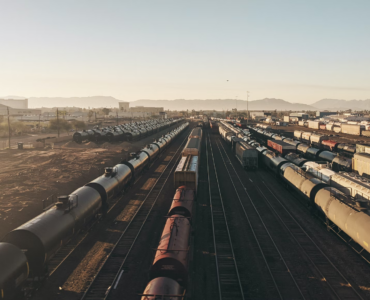
Quantifying Railroad Service Issues: A Case for Ra...
Darrell Luther of Tealinc compiled a list of questions to ask yourself, and steps to take, with regard to quantifying rail service issues.


